 W
WEncyclopedia of Modern Ukraine, abbreviated EMU, is a multi-volume national encyclopedia of Ukraine. It is an academic project of the Institute of Encyclopaedic Research of the National Academy of Sciences of Ukraine. Today, the reference work is available in a print edition and online.
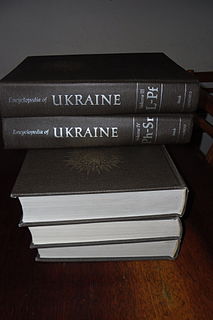 W
WThe Encyclopedia of Ukraine is a fundamental work of Ukrainian Studies created under the auspices of the Shevchenko Scientific Society in Europe. As the Encyclopedia of Ukrainian Studies it conditionally consists of two parts, the general part (1949-1952) that includes three volumes and the dictionary part (1955–89) that includes 10 volumes. It was published in Ukraine since 1991.
 W
WPaul Robert Magocsi is an American professor of history, political science, and Chair of Ukrainian Studies at the University of Toronto. He has been with the university since 1980, and became a Fellow of the Royal Society of Canada in 1996. He currently acts as Honorary Chairman of the World Congress of Rusyns, and has authored many books on Rusyn history.
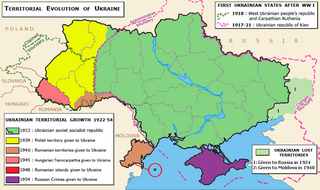 W
WUkraine emerges as the concept of a nation, and the Ukrainians as a nationality, with the Ukrainian National Revival which is believed started sometime at the end of 18th and the beginning of 19th century. According to Ukrainian historian Yaroslav Hrytsak, the first wave of national revival is traditionally connected with publication of the first part of "Eneyida" by Ivan Kotlyarevsky (1798). In 1846, in Moscow the "Istoriya Rusov ili Maloi Rossii" was published. During the Spring of Nations, in 1848 in Lemberg (Lviv) the Supreme Ruthenian Council was created which declared that Galician Ruthenians are part of the bigger Ukrainian nation. The council adopted the yellow and blue flag.
 W
WThe Odessa Museum of Regional History is a historical museum in Odessa, Ukraine. It is dedicated to the regional history of Odessa.
 W
WYaroslav Ivanovych Pavulyak, also known as "Jaroslav Pavuliak", was a Ukrainian poet.
 W
WUkraine's public diplomacy is an instrument of Ukraine's foreign policy aimed at promoting an attractive image of the state abroad through communication at the level of the public of other states. It includes the use of cultural diplomacy, social media, cooperation with non-governmental organizations and the Ukrainian diaspora, the creation and promotion of a state brand, and more. The impetus for the intensification of Ukrainian public diplomacy was the counteraction to Russia's armed aggression against Ukraine and the information war, Ukraine's search for foreign support, and the process of Ukraine's European and Euro-Atlantic integration.
 W
WRuthenians and Ruthenes are Latin exonyms formerly used in Western Europe for the ancestors of modern East Slavic peoples, especially the Rus' people with an Eastern Orthodox or Ruthenian Uniate Church religious background. The corresponding word in the Ukrainian language is "русини" (rusyny).
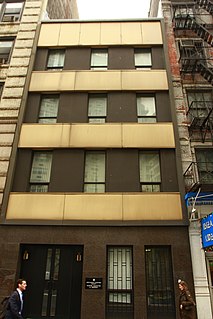 W
WThe Shevchenko Scientific Society is a Ukrainian scientific society devoted to the promotion of scholarly research and publication that was founded in 1873.
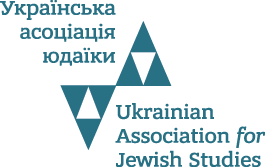 W
WThe Ukrainian Association for Jewish Studies (UAJS) is a non-profit academic and professional non-governmental organization that brings together Ukrainian scholars and students who work in the field of Jewish studies. The UAJS was established in 2015.
 W
WThe Ukrainian Book Institute is a state institution under the Ministry of Culture of Ukraine. It is designed to shape state policy in the book industry, promote book reading in Ukraine, support book publishing, encourage translation activities, and popularize Ukrainian literature abroad.
 W
WThe Ukrainian Free University is a private graduate university located in Munich, Germany.
 W
WUkrainian, historically also Ruthenian is an East Slavic language. It is the official state language of Ukraine and one of the three official languages in the unrecognized state of Transnistria, the other two being Moldovan and Russian. Written Ukrainian uses a variant of the Cyrillic script.
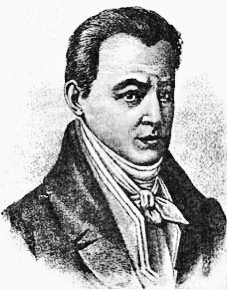 W
WUkrainian literature is literature written in the Ukrainian language.
 W
WUkrainian Soviet Encyclopedia was a multi-purpose Encyclopedia of Ukraine, issued in the USSR.
 W
WUkrainian underground is movement in soviet period of Ukraine, from the late 1950s until the early 1990s. This art form was banned by several totalitarian countries of Eastern Europe and the USSR. It was also known under other names, such as Unofficial art, Nonconformism, and Dissident art. It ended due to the Perestroika reform movement, which lead to Ukrainian independence in 1991. After the Soviet Union collapsed, similar counter-cultural processes developed under the names of "alternative" or "marginal" art.
 W
WUkrainians are an East Slavic ethnic group native to Ukraine, which is by total population the seventh-largest nation in Europe and the second-largest among the East Slavs after the Russians. The Constitution of Ukraine applies the term 'Ukrainians' to all its citizens. The people of Ukraine have historically been known as "Ruthenians", "Little Russians", and "Cossacks", among others. The connection with the Zaporozhian Cossacks especially, is emphasized in the Ukrainian national anthem, "We are, brothers, of Cossack kin". According to most dictionary definitions, a descriptive name for the "inhabitants of Ukraine" is Ukrainian or Ukrainian people. The majority of Ukrainians are Eastern Orthodox Christians.
 W
WAndreas Umland (born 1967 in Jena, German Democratic Republic) is a political scientist studying contemporary Russian and Ukrainian history as well as regime transitions. He has published on the post-Soviet extreme right, municipal decentralization, European fascism, post-communist higher education, East European geopolitics, Ukrainian and Russian nationalism, the Donbas and Crimea conflicts, as well as the EU's neighborhood and enlargement policies. He is a Senior Expert at the Ukrainian Institute for the Future in Kyiv as well as a Research Fellow at the Swedish Institute of International Affairs in Stockholm. He lives in Kyiv, and teaches as an Associate Professor of Politics at the National University of Kyiv-Mohyla Academy. In 2005–2014, he was involved in the creation of a new Master's program in German and European Studies administered jointly by the Kyiv-Mohyla Academy and Jena University.